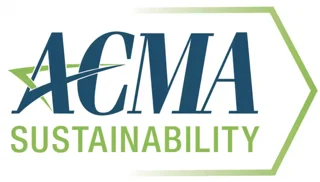Any sustainability project should start with a lifecycle assessment (LCA) no matter your objective – developing the environmental product declarations (EPDs) required for construction products, decarbonizing your manufacturing process, demonstrating full-lifecycle environmental benefits, supporting your customers’ net-zero pledges or ESG programs, complying with climate reporting requirements, recycling your plant scrap or buying recycled material for a manufacturing input.
A cradle-to-gate LCA is the starting point because it provides a transparent estimate of the emission of climate warming gases and other environmental impacts associated with extraction of materials from nature and production of intermediate products (such as resin and reinforcement), the transportation of materials from point of extraction to your plant and the process used to manufacture your product.
You may not be able to control what happens to your product after it leaves your factory, but you do have control over – and will be held responsible for – the environmental impacts associated with your product up to that point. Increasingly, customers or regulators will want to know the results of your cradle-to-gate LCA and shortly thereafter will want to see your plan for reducing those impacts.
This conception of the LCA as the necessary starting point for any company’s sustainability journey drives the development and implementation of ACMA’s Climate Impact Project (CIP). CIP programs are designed to help composites manufacturers cost effectively and reliably prepare cradle-to-gate LCA and, for construction products, translate LCA data into the standardized EPDs that allow comparison of impacts across products.
ACMA’s Climate Impact Project provides the following resources and programs to help composites manufacturers develop the lifecycle assessments that are the starting point for reaching sustainability objectives:
Industry average LCA for common raw materials – For the majority of LCAs that will be developed by composites manufacturers, ACMA’s industry average LCA for unsaturated polyester and vinyl ester resins, polyurethane precursors and glass fiber are the best available information and are acceptable for use in end-product LCAs. (Figure 1 is a table from ACMA’s industry average LCA data for unsaturated polyester resin.) ACMA’s LCAs for these raw materials and intermediates are available in an ACMA report and via the lifecycle inventory database maintained by the National Renewable Energy Laboratory (www.nrel.gov/lci/).
Development of product category rules – For products provided for a specific construction application, like reinforcing bar for concrete structures, a product category rule guides the development of LCAs and EPDs so that the climate and other environmental impacts of product options for the application can be compared. Under the CIP, ACMA hires program operators to work with committees comprising industry professionals, end users, academic representatives and consultants to develop PCRs for construction applications that are important markets for composite products.
Education on LCAs – ACMA has found that a significant barrier for companies is the lack of familiarity with lifecycle assessment. ACMA’s CIP is developing LCA/EPD case studies that will demonstrate the development and communication of environmental impacts assessment for actual composite products used in a variety of markets. ACMA is also producing a 3-hour video that will provide an in-depth introduction to LCAs and EPDs for composites manufacturers.
Cost-effective and reliable LCAs and EPDs – ACMA believes there can be significant reductions in cost and improved responsiveness and reliability if composites manufacturers collectively prepare and have independently verified impacts data for common process inputs (such as resin, reinforcement and fillers) and if these companies have access to LCA practitioners and EPD program operators that have experience with and access to the LCI databases for composite raw materials and processes. As part of the CIP, in 2024 ACMA will launch the CompositesLCA™ program that will provide independently verified LCAs and EPDs for composites manufacturers at a significantly reduced cost and increased reliability compared to what could be obtained by composites manufacturers independently.


